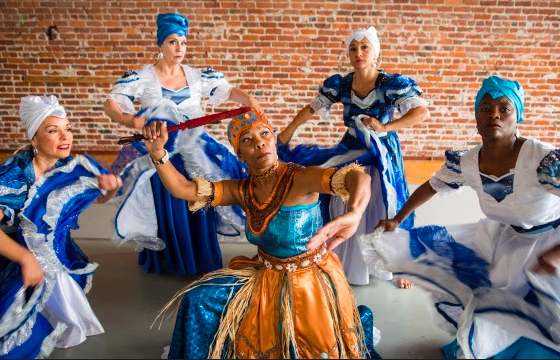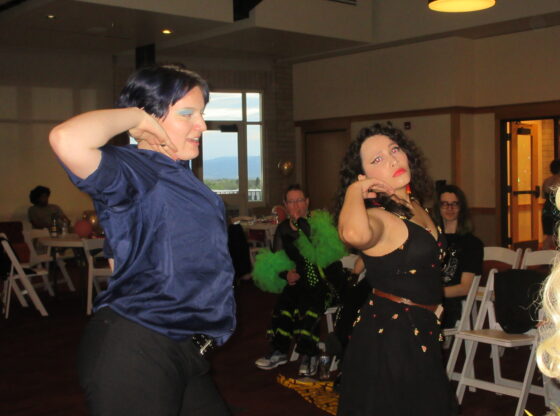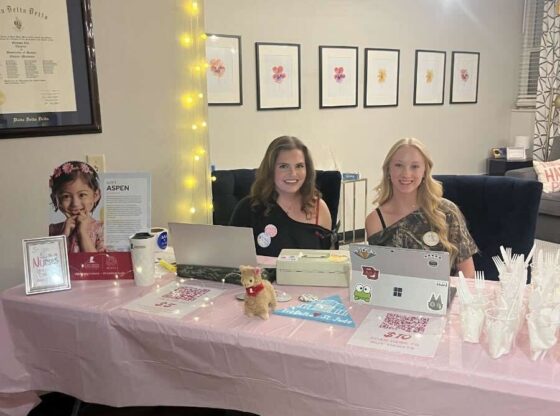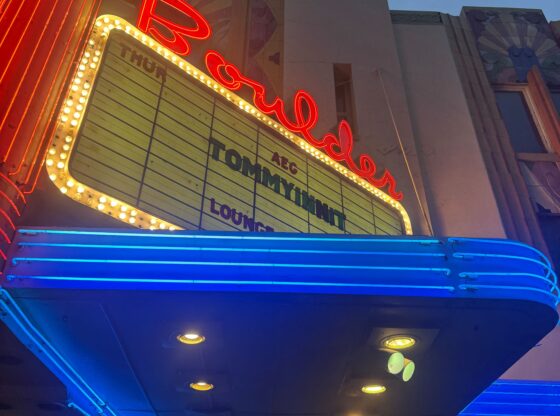In months prior, every Sunday at Cheesman Park, you could enjoy a free Afro-Cuban dance class with COVID-19 guidelines in place. The lively, intricate body movements provided a reason to get outside and move your body, as well as an opportunity to learn about Afro-Latin culture through music and dance, at no cost. Unfortunately, given the rising number of COVID-19 cases, the classes were canceled until further notice, but the unique spark of this event and its cultural history lives on.
“About 4 years ago, I started training in Afro-Cuban dance with my instructor from Cuba, Ramses Shango Aggayu, and this summer we decided to open it up to the general public,” said Tom “El Rasta Salsa” Ogunribido, a local salsa and bachata dance instructor who helps lead the Afro-Cuban dances in the park. “Due to the coronavirus, we held them outside in the park, which ended up working well because Afro-Cuban dance has a lot of connection to the earth, and so being able to be outside and feel the ground was very exciting. It was an opportunity for us to give something that we absolutely love to the Denver community.”
No experience is required to attend the classes, as there is a wide range of dancers. Many come in with previous dance experience and want to learn Afro-Cuban dance because it contains versatile movements that can be applied to other styles of dance, including jazz, Latin, hip-hop and more. “With that being said, we also have people who have never danced in their lives that come because they are personally interested in learning about Afro-Cuban culture through dance and music,” said Ogunribido.
Afro-Latin music and dance have a diverse and rich cultural history. “When we talk about Afro-Latin music, we’re talking about a lot of music. Obviously, enslaved Africans were in the Americas for a very long time, and that’s how Afro-Latin music developed. Salsa specifically emerged from New York City in the 1970s, within Latin-American communities. Like hip-hop, it was very much addressing issues of poverty, inequality and violence that a lot of under-resourced communities were experiencing at that time,” said Aleysia K. Whitmore, an assistant professor of ethnomusicology at the Lamont School of Music.
Not only did Afro-Latin music address political and social change, it fostered other famous music and dance genres to emerge. For example, “son cubano” is an Afro-Cuban music genre that combines African and European musical traditions. “It became popular in Cuba in the early twentieth century and traveled around the world. It fostered what we call the Latin Dance Craze of the 1930s and ’40s, which included genres like the mamba and the cha-cha,” said Whitmore.
Whether it be salsa, bachata or the mamba, the multilayered and vivid genres of Afro-Latin music continue to prosper today, as seen in the free Afro-Cuban dance classes offered at Cheesman Park. Despite its cancellation due to COVID-19, this event has spread the cultural spirit of Afro-Latin music to the Denver community for free. Therefore, there is no doubt that these classes will start up again in the future and bring the same sense of liveliness and community.











